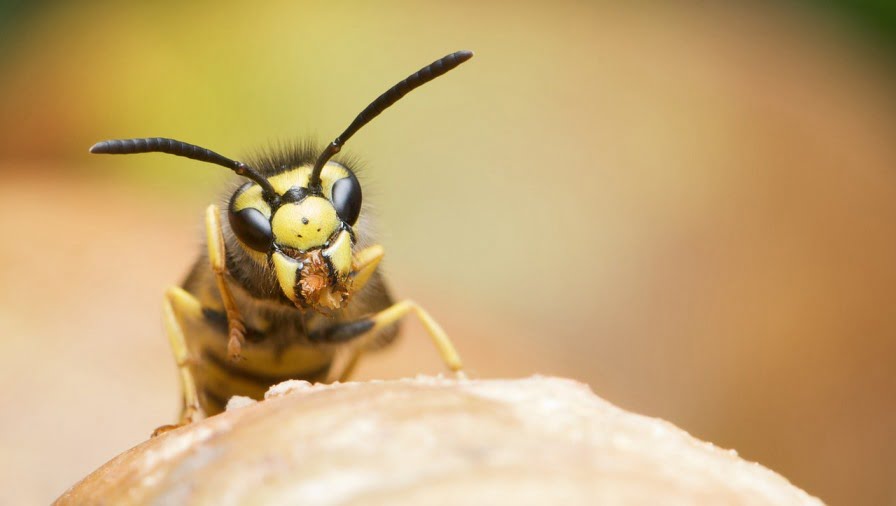You’d think that one country unleashing millions of predatory bugs on another country would be akin to an act of war. Not so.
South Africa went so far as to pay Israeli company BioBee $24 million for 160 million killer wasps to help its farmers get rid of pests – the natural way.
The wasps are being deployed in vineyards and orchards across South Africa, significantly reducing the need to use harmful pesticides. The wasps will primarily combat mealybugs, tiny insects that can ravage crops.
A company spokesperson tells NoCamels that the cost of 1,000 wasps is $150, which means South Africa poured $24 million on the critters.
SEE ALSO: EdenShield Invents Product That Makes Crops ‘Invisible’ To Pests
By employing predatory bugs that attack and kill harmful insects, BioBee Biological Systems has developed a technique free of chemicals. Already, the company’s solutions can be found on farms across 50 countries, including Russia and Colombia, where BioBee recently shipped a total of 1.1 billion ‘predatory’ spider mites.
The natural enemies of harmful pests
Founded in 1984 in Kibbutz Sde Eliyahu, BioBee’s facility mass-produces the natural enemies of harmful pests by harvesting spiders, flies, wasps and bees for various purposes.
How does the system work? BioBee ships the wasps when they are still at the pupa stage. The larva evolves into a wasp inside the cocoon, which was previously mixed with mealybugs by BioBee. In the process of becoming an adult wasp, the critter eats the insides of the mealybug, whose body protects the maggot.
Simply put, the wasps’ larvae live inside the mealybug as parasites, but they eventually kill their hosts. After the farmer places the cocoons on the plants, and as the wasps emerge, they continue to feed on the mealybugs and their offspring go on to combat these pests as well.
“The subsequent established generations of the wasps will effectively control the mealybugs in the longer run,” BioBee said in a statement. “The parasitic wasp is highly valuable as a mealybug control agent in South Africa, reducing infestation levels of both the citrus mealybug and vine mealybug. It also increases the percentage of marketable yields of both citrus fruits and grapes.”
Combating super-bugs
Sign up for our free weekly newsletter
SubscribeAccording to BioBee, its solution is a good investment for farmers, who may otherwise be limited in exporting crops that were sprayed with chemical pesticides, which are restricted by international laws.
Experts have long advocated for a decrease in the use of aggressive chemical pesticides, to benefit public health. In addition, pesticides damage the environment, pollute the water and air in their surroundings, as they are easily carried by the wind.
Another reason to reduce the use of pesticides is that, with time, pests develop resistance to pesticides. This encourages farmers to use more and more pesticides, while generations of powerful super-bugs proliferate.
SEE ALSO: Replacing Chemical Pesticides With Natural Anti-Pest Vegetable Oils
The alternative provided by BioBee is inspired by what is called in the scientific literature “the biological control phenomenon,” which is the natural balance of the “good bugs” eating the “bad bugs.”
The impact of this method has been measured on crops in Israel, yielding impressive results, according to BioBee: On sweet pepper crops, it reduced the use of pesticides by 75 percent; and on strawberry crops, they were reduced by 80 percent.
Every other tomato is Israeli
The current shipment of wasps is a joint venture with another Israeli company, Hishtil, which has been operating several nurseries in South Africa for nearly a decade. According to the company, 50 percent of the tomatoes sold in South Africa were grown by Israeli enterprises.
With the 160 million Israeli wasps naturally protecting these tomatoes (and other crops), local produce is bound to become much healthier and contribute to a cleaner environment.
Photos: Iryna Kuchma, Crisco 1942
Related posts

Resilient And Nutritious New Plant-Based Milk Aims To Make A Splash

Chocolate From Cultivated Cocoa Comes Without Environmental Toll

Plastic Fantastic: Startup Takes PVC Back To Its Crude Oil Roots







Facebook comments